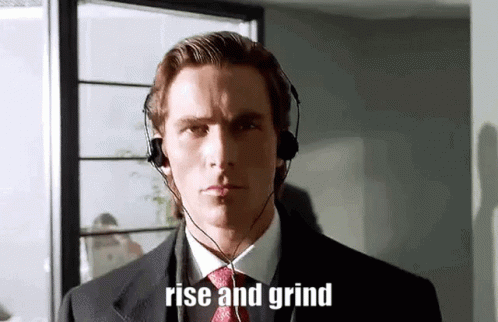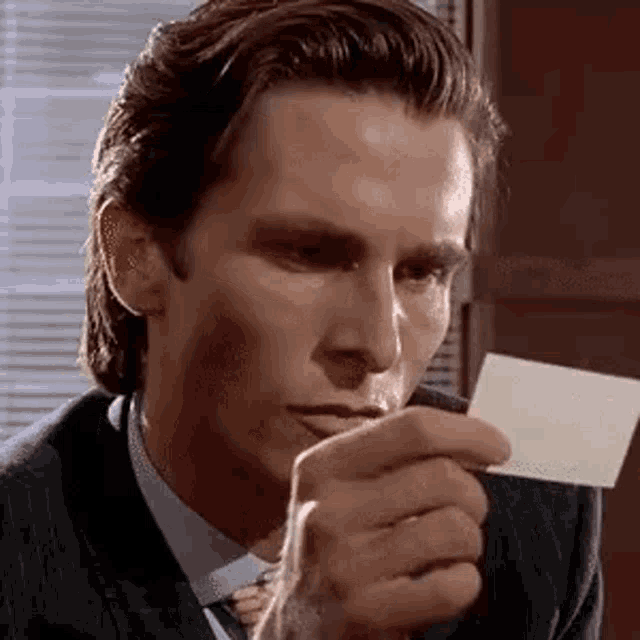Guides
What Is 'Hustle Culture' And Why Is It So Widely Mocked On The Internet? Sigma Slang And Other Memes Explained
Any working stiff recognizes the cacophony of motivational posts that clog your more professional social media profiles once you enter the workforce. Phrases like "Your network is your net worth" have been the bread and butter of LinkedIn and Instagram influencers focused on teaching you how to "grind" for years. But this genre of motivational hustle posting has not flourished without mockery.
If you are inundated with posts from seemingly wealthy and successful men urging you to focus on entrepreneurship at the cost of a healthy social life, possibly enabled with the help of a paid "course" designed by them, you might be in need of an antidote. Here's all you need to know about (anti) Hustle Culture memes.

What Is 'Hustle Culture'?
Some of the earliest and most influential cultural critiques of Hustle Culture came from films satirizing workers engaging with the '80s stock market. Some popular example is Mary Harron's adaptation of Bret Easton Ellis's '80s satire American Psycho. The characters in this film place great importance and value on appearance and wealth, which are the focus of modern Hustle Culture memes, with Patrick Bateman making repeat appearances in several hustle memes.

But Leonardo DiCaprio in The Wolf of Wall Street (2007) takes the cake for being the poster child for Hustle Culture memes. His likeness is used both sincerely and ironically, as seen in memes like "If you're 20-30 and your main circle isn't discussing X."

When Did Sincere Hustle Culture Memes Begin To Spread?
The 2010s saw a rise in motivational posters featuring popular cultural figures that are understood to embody the spirit of Hustle Culture. These faces range from real people like Gary Vee, Elon Musk to entrepreneurial comic book characters like Tony Stark, with memes about them showcasing their independent motivations and business acumen. Such non-ironic memes are designed strictly for motivational purposes, offering advice to viewers.

By the late 2010s, various social media profiles served content specifically geared toward male motivational posting. Accounts with names like @successowner, @entrepreneurshipfacts and @billionaire_word posted text-filled images outlining how you too could grind your way into a successful lifestyle.
What Gave Rise To Ironic Hustle Culture Memes?
Ironic hustle culture memes were born out of the saturation of aforementioned sincere content on social media, with one sincere #grindsetmindset era post giving rise to one of the earliest popular hustle meme trends.
A Twitter account called "The Wealth Dad" posted a tweet in 2020 about how friend groups in their 20s-30s should be discussing stocks, real estate and the like. This format was spun into a template that featured DiCaprio from Wolf Of Wall Street saying that friend groups not discussing yurts, permaculture and chestnuts are not worth staying in.


The satirization of sincere hustle posting often takes the form of such posts but subverts the message. Take, for example, dramatic black-and-white photos with serif texts laid over them. Or parodies of Rap TV headlines that adopt the font and template of a Rap TV post, but insert a nonsensical message.


What Are Some Other Ironic Hustle Culture Memes?
Another example of an ironic Hustle Culture meme is the phrase "Let's get this bread," which is often used as a good morning greeting on social media.


Another classic Hustle Culture meme is the phrase "We are not the same," which is used to ironically place oneself as superior to another.


For the full history of Hustle Culture memes, be sure to check out Know Your Meme's encyclopedia entry for more information.

Comments ( 0 )
Sorry, but you must activate your account to post a comment.
Please check your email for your activation code.